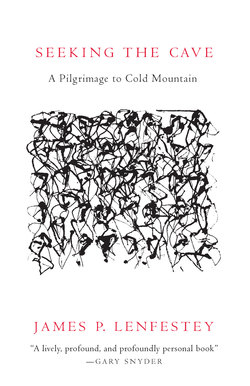Читать книгу Seeking the Cave - James P. Lenfestey - Страница 17
На сайте Литреса книга снята с продажи.
ОглавлениеCHAPTER FOUR
PASSAGE TO MORE THAN KYOTO
From the bullet train to Kyoto we watched Tokyo’s suburban factories recede into groves of bamboo, islands of pine, hillsides speckled with dark tea bushes. A familiar snowcapped cone appeared in the distance, iconic Mount Fuji, inspiration for Japanese artists for millennia. Settling in, I pulled from my backpack Watson’s translation of poems by the Japanese Zen hermit monk Ryōkan (1758–1831), a fellow follower of Cold Mountain.
I read that Ryōkan began training for a life as a village headman, the first son expected to follow his father’s path. But he turned instead to a mountain hermitage to enter a life of meditation and poetry; no one knows why. I had an idea. An only son, like Ryōkan, I too was groomed from birth to follow the father’s path, in my case a family business, a staple in Green Bay, nearly seventy-five years old when I was born in 1944.
Yet, as for Ryōkan, that golden suit of clothes held out for me, lovingly and generously offered, never seemed to fit. I recall from a young age a sense of discomfort at family praise that felt unearned, undeserved. So my drift away from my family’s business expectations toward literature, although much slower than Ryōkan’s, and quite painful all around, now felt to me a similar, inevitable step. Ryōkan became a Buddhist monk, then a hermit; I, like Cold Mountain, a husband and father. But in the end, we both found the path toward the mysterious energies of poetry.
Ryōkan took little with him to his mountain retreat, but he did bring his volume of his beloved Kanzan, Cold Mountain.
RYŌKAN NO. 35
Done with a long day’s begging,
I head home, close the wicker door,
in the stove burn branches with the leaves still on them,
quietly reading Cold Mountain poems.
West wind blasts the night rain,
gust on gust drenching the thatch.
Now and then I stick out my legs, lie down—
what’s there to think about, what’s the worry?
I too read Cold Mountain poems after work, my fingertips reading and writing. I also worry—are my poems poems, or just another wayward enthusiasm? Ryōkan offered no comfort on this matter, mocking a “fine gentleman” who might look a lot like me.
RYŌKAN NO. 259
How admirable—the fine gentleman,
in spare moments so often trying his hand at poetry!
His old-style verse is modeled on Han and Wei works;
for modern style, he makes the T’ang his teacher;
with what elegance shapes his compositions,
adding touches that are striking and new.
But since he never writes of things in the heart,
however many he may turn out, what’s the point?
My poems had better come from the heart, indeed, or “what’s the point?” But how was one to know? Ryōkan offered little guidance here either, famously saying (in Watson’s translation):
Who says my poems are poems?
My poems are not poems at all!
Only when you understand that my poems are not poems
can we begin to talk about poems.
Ryōkan’s original name was Eizō Yamamoto, but he lived long enough to take two new names: Ryōkan, “Goodly Tolerance,” and Taigu, “Great Fool.” I was born halfway there. Lenfestey, old Norman French from the Island of Guernsey, means “one who is festive,” from the same Latin root as “festival.” I happily claim Feste, the fool in Shakespeare’s Twelfth Night, as my spiritual ancestor, who said “Foolery, sir, doth walk about the orb like the sun; it shineth everywhere.” But would I ever find my other true name?
RYŌKAN WROTE NO POEMS!
Ryōkan wrote his poems like Han-shan.
Who says I cannot do the same?
He asks only that the reader understand
that his “poems are not poems.”
After forty years of practice,
I’m beginning to understand.
Now if I can only locate my heart. Is it inside
my head, my chest, my spine, or my pen?
